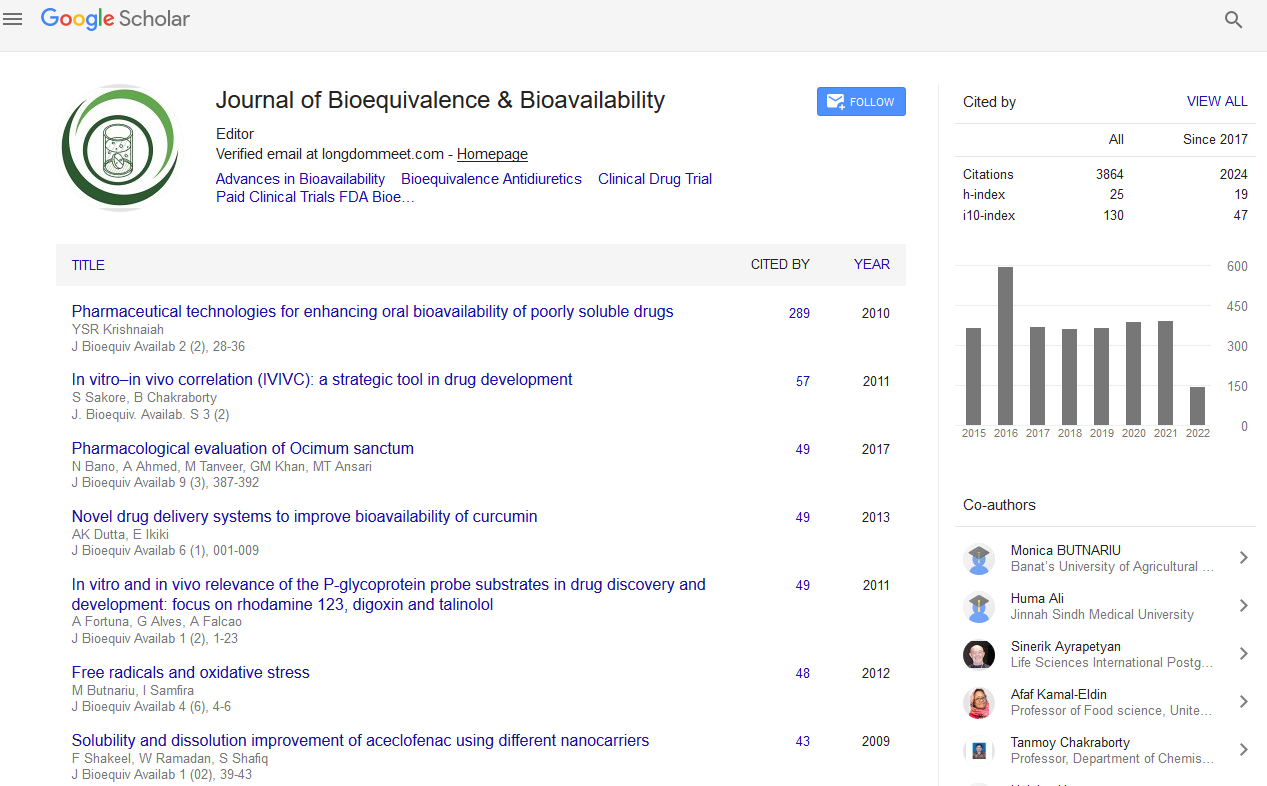PMC/PubMed Indexed Articles
Indexed In
- Academic Journals Database
- Open J Gate
- Genamics JournalSeek
- Academic Keys
- JournalTOCs
- China National Knowledge Infrastructure (CNKI)
- CiteFactor
- Scimago
- Ulrich's Periodicals Directory
- Electronic Journals Library
- RefSeek
- Hamdard University
- EBSCO A-Z
- OCLC- WorldCat
- SWB online catalog
- Virtual Library of Biology (vifabio)
- Publons
- MIAR
- University Grants Commission
- Geneva Foundation for Medical Education and Research
- Euro Pub
- Google Scholar
Useful Links
Share This Page
Journal Flyer

Open Access Journals
- Agri and Aquaculture
- Biochemistry
- Bioinformatics & Systems Biology
- Business & Management
- Chemistry
- Clinical Sciences
- Engineering
- Food & Nutrition
- General Science
- Genetics & Molecular Biology
- Immunology & Microbiology
- Medical Sciences
- Neuroscience & Psychology
- Nursing & Health Care
- Pharmaceutical Sciences
Investigation of the biochemical mechanism of action of antioxidants in the prevention of cancer
2nd International Conference & Expo on Biopharmaceutics and Biologic Drugs
September 14-16, 2016 San Antonio, USA
Kissi Mudie
Ethiopian Public Health Institute, Ethiopia
Scientific Tracks Abstracts: J Bioequiv Availab
Abstract:
Background: Cancer refers to a group of diseases that are associated with a disturbance in the control of cell growth and metabolism. Indeed, the unbalanced control of cellular proliferation is a primary characteristic of cancer cells and, as such, any molecule capable of inhibiting cancer cell proliferation may also be useful as a potential chemo-preventive agent. Throughout history, antioxidants have been the most significant source of anticancer and chemopreventing agents. More than 1,000 different phytochemicals are already proved to possess interesting chemopreventing activities. Antioxidants consist of a wide variety of biologically active phytochemicals including phenolics, flavonoids, carotenoids, etc., that have been shown to suppress early and late stages of carcinogenesis. Objective: To review recent biochemical and molecular mechanisms, in relation to natural and synthetic chemopreventing substances (antioxidants) for cancer control and management. Major Findings: Antioxidants exert anticancer effects via a variety of mechanisms, including removal of carcinogenic agents, modulation of cancer cell signaling and cell cycle progression, promotion of apoptosis and modulation of enzymatic activities. Conclusion: This review provides an updated and comprehensive overview on the anticancer effects of antioxidants in-vitro and in-vivo animal models including recent intervention studies. Finally, possible mechanisms of action involving antioxidant and prooxidant activity as well as interference with cellular functions are discussed.
Biography :
Kissi Mudie has completed his MSc in Medical Biochemistry from Addis Ababa University, School of Medicine. He is the Director of National Clinical Chemistry Laboratory, Ethiopian Public Health Institute. He has published more than 14 papers in reputed journals and has been serving as an Associate Researcher.
Email: kissimudiey@yahoo.com


